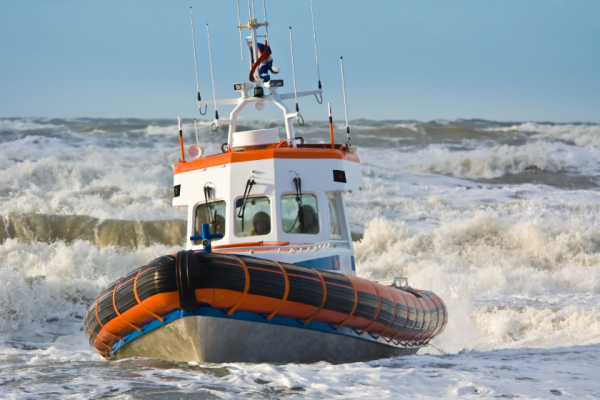GMB win worker status for HM Coastguard rescue workers in 298 rescue stations around the UK after three-year legal battle

'This judgement brings a level of responsibility to HM Coast Guard to treat rescue workers with respect and dignity they haven’t been shown before' says GMB coastguard rescue worker.
The Employment Appeal Tribunal has ruled that HM Coastguard rescue staff are workers and a contract existed between the parties in circumstances where coastguard rescue workers had the right to be remunerated for their activities in a case brought by GMB Union.
The case was started by Martin Groom a coastguard rescue worker at the Bembridge rescue station in the Isle of Wight who was denied basic employment rights at his workplace.
Arising from this case GMB pressed for proper employment status for more than 3,500 HM Coastguard rescue workers based at 298 rescue stations around the UK of which 116 are around the coast of mainland Scotland and the Islands. In the table below are the numbers of HM Coastguard rescue workers by area across the UK, for a full list alphabetically by area of 298 coastguard rescue stations (see Notes to Editors).
The duties of HM Coastguard rescue workers include helping rescue people trapped on the coast, for example on cliffs, stuck in mud or in the water, search for missing people, report and deal with pollution and other hazards and help emergency services and local authorities during emergencies, for example, flooding.
These HM Coastguard rescue workers can be called out at any time of the day or night so they work irregular hours. They may have to work in hazardous situations for long hours and may have to carry out physically demanding tasks.
HM Coastguard rescue worker can have other employment. Required skills include: first aid, water rescue, map work, search techniques, communications and skills needed in local area, for example, rope rescue, mud rescue etc.
GMB demanded that their status as workers is properly recognised and the work they do is properly valued and recognised. Like for other recent high-profile workers in irregular employment across the UK, the union pressed on with litigation to obtain justice for these brave men and women.
Numbers of HM Coastguard rescue workers on irregular hours by Areas across the UK
|
Area 1 Scotland & Orkney Islands |
137 |
|
Area 2 North Scotland |
126 |
|
Area 3 East Scotland |
97 |
|
Area 4 Inner Clyde to River Tay and East Scottish Border |
134 |
|
Area 5 North East England |
122 |
|
Area 6 East of England (Yorkshire, Humberside & Lincolnshire) |
134 |
|
Area 7 East Anglia |
155 |
|
Area 8 South East England |
152 |
|
Area 9 : Southern England including Isle of Wight |
202 |
|
Area 10 : South West England |
175 |
|
Area 11 : Cornwall including Isles of Scilly |
162 |
|
Area 12 : North Devon including Severn Estuary |
176 |
|
Area 13 : South East Wales to Mid-Wales |
203 |
|
Area 14 : North West Wales |
162 |
|
Area 15 : Great Orme to West Scottish Border including the Lakes |
152 |
|
Area 16 : Solway to Firth of Clyde including Northern Ireland |
190 |
|
Area 17 : Kintyre to Mull, Isle of Arran and Inner Hebrides |
159 |
|
Area 18 : Loch Linnhe to Outer Hebrides including Skye & the Small Isles |
160 |
Gary Smith, GMB General Secretary, said:
“This is a landmark win for coastguard rescue staff -and workers - everywhere.
“The public have the utmost respect for the brave men and women who keep our coasts safe. This ruling demands that their employers do the same.”
Martin Groom, lead claimant and former HM Coastguard, said:
“This judgement brings a level of responsibility to HM coastguard to treat rescue workers with a respect and dignity they haven’t been shown before.
“They now cannot terminate contracts on a whim – we are workers and deserve to be treated as such.
“I’d like to acknowledge the effort, time and input of GMB – without the union we would not have been able to fight the case.”
List of locations of HM Coast Guard Stations around UK


